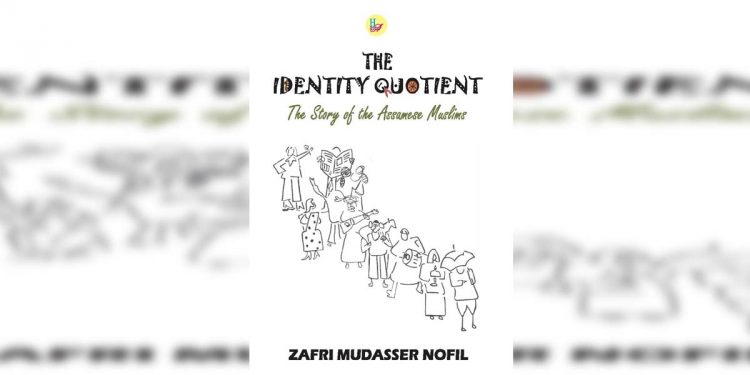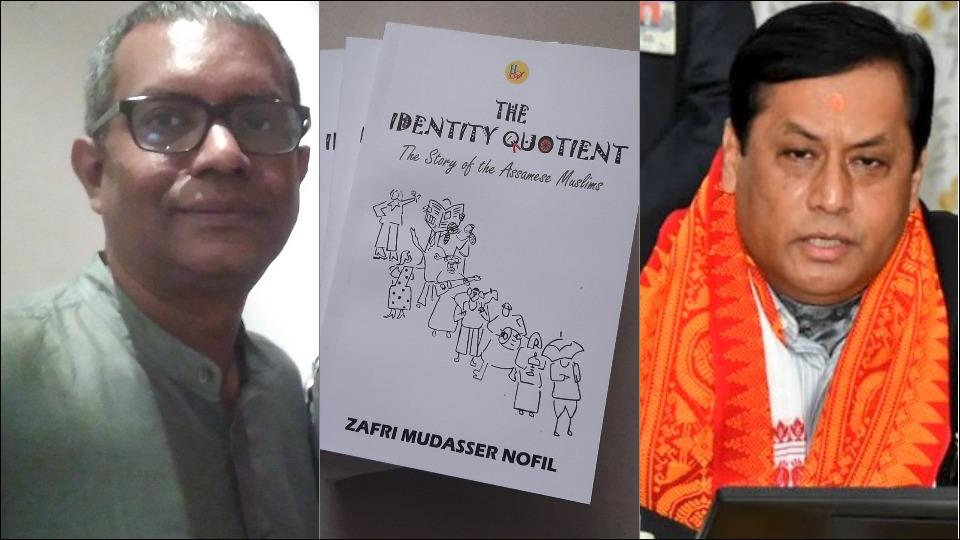Dibrugarh, ASSAM / NEW DELHI :

A book titled ‘The Identity Quotient: The Story of the Assamese Muslims’, authored by Zafri Mudasser Nofil, attempts to define the Assamese Muslims as distinct from the Muslims in other parts of India and different from the immigrant Muslims in Assam.
New Delhi-based author Zafri Mudasser Nofil, who hails from Dibrugarh, says the Assamese Muslims are different from the rest of the community in the country.
Over the years, they have assimilated to the greater Assamese society to such an extent that barring religion, there is not much to differentiate them.
But of late, this community has been suffering from the ignominy of being bracketed with illegal immigrants as ‘Miya’, Nofil, who himself is an Assamese Muslim, laments.
Muslims residing in the state for centuries consider themselves to be an integral part of Assamese society, he writes.
In the book, he cites an example of this aspect: The ancestors of the Daullahs, a respected Muslim family in Sivasagar town played the negera – a kind of drum – at the Dols in Sivasagar during the reign of the Ahom kings.
During those days, animals were sacrificed on Ashtami day of Durga Puja as offering to the goddess.
As a gesture of respect to people of other beliefs, the Sivasagar Dol Development committee offers a sacrificial goat to the Daullah family even now. (From an edited excerpt)
Another excerpt which reveals the assimilation reads: “Magh Bihu for Deshi Muslims is Pushna while Bohag Bihu is Beshoma. On Goru Bihu, the first day of the Bohag Bihu, people in the state give a traditional bath to their cows and bulls they rub a paste of pulses and turmeric and then birch them very gently with leaves of some shrubs… After the cattle are given a bath the Deshis eat Misheli, a preparation of fried rice, lentils, onions and chillies.”
Nofil says that the contribution of Assamese Muslims over the years had been multi-faceted, diverse and immense.
“Be it politics, civil services, literature, art, education, medical science, law, sports, music, films and entertainment, they have excelled in every field. Of the most valuable contributions to the cultural richness of Assam are the Zikir and Zari songs,” he elaborates.
“Litterateur Imran Shah says the contribution of Assamese Muslims to the greater Assamese society is unparalleled. But it’s a case of ‘little done and vast undone’ as far as documentation is concerned,” he further says.
As he was toying with the idea of this book, he remembered what Toni Morrison once said: “If there’s a book that you want to read, but it hasn’t been written yet, then you must write it.”
Despite the vastness of the subject and the challenges it posed, the fact that there was very little published materials regarding the Assamese Muslims prompted Nofil to go ahead and write the book on this topic.
The book unravels the journey of this community and looks at how they have contributed significantly to the composite heritage of the state.
It profiles icons like Bagh Hazarika and Bahadur Gaon Burha to achievers like Imdad Ali, Yamin Hazarika, Adil Hussain and Begum Parveen Sultana, and also looks at some of the interesting customs of Deshis, Moriyas and Julhas.
“Assam is a land representing cohesive social and cultural tapestry and Muslims have a history of over seven-and-a-half centuries in the state.”
“The indigenous Assamese Muslims trace their lineage to the medieval period when Muslim rulers and generals invaded the region. They came to Assam in various phases.
“Ali Mech is believed to be the first person to convert into Islam sometime in the early 13th century and ever since, Muslims have merged into the sociocultural milieu of Assam,” Nofil says.
“I have attempted to write this book as narrative non-fiction though I have profusely quoted from historical texts that are relevant to the discussion,” he adds.
There are several nuggets highlighting age-old camaraderie and also chapters on Azan Pir and his Zikirs, cuisine, Muslim marriages, the NRC and the CAA.
(‘The Identity Quotient: The Story of the Assamese Muslims’ is available on Amazon and with Har-Anand Publications. The author can be reached at zafri.nofil@gmail.com and @zafrimn on Twitter)
source: http://www.nenow.in / North East Now / Home> Article / by Smita Bhattacharya / December 26th, 2020









